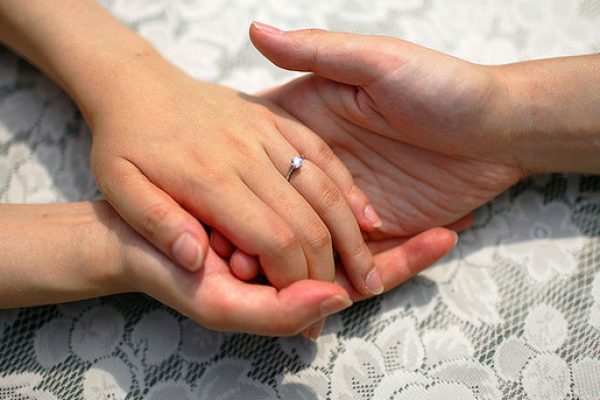If Only I Could Smoke Cappuccino…Oh Wait, with E-Cigarettes, I Can!

The first time I ever had a taste of capuccino it made me feel "grown up" and sophisticated. I was 16 years old back then. It was also the first time I had (more…)
Clear Magic: How Smoking Clouds up My Life

I’ve got a little gray card laying on my table titled “My most important reasons to quit smoking.” It’s been laying there awhile now, and even though I have seriously reigned in my addiction, I haven’t “committed” to it yet. Well, maybe I have. It has been a few days. Oh, maybe I haven’t. It is Friday... This back and forth has gone on for quite some time. Years.
I know that listing my reasons is an important step in my commitment, but I couldn't think of any. Oh, sure, I am excited about not stinking, about nicer skin and hair, about breathing deeply. But there's more to it than that. "Better health" didn't really encompass all the wonderful gifts that would come into my life the less I smoke.
While I was brushing my teeth the other morning, mentally congratulating myself on the fact that I hadn’t smoked a cigarette in a few days, and feeling mighty fine about it, on every level, my Most Important Reason came to me. It’s a little... ah, shall we say ‘non-traditional?’ but it will work for me because it means something to me.
My most important reason to quit smoking is because it clouds up my ‘magic’.
I personally think we all have a little magic in us, and I don’t mean the Harry Potter kind. I mean our sense of self, our intuition, our belief in what our bodies and minds are capable of and the manifestation of that belief in our daily lives. I get to live a little magic each day. When I come to an intersection and I don’t have to stop my bicycle because the traffic seems to “magically” part like the Red Sea, and I can pedal safely to the other side, that’s magic, for me. When I do my meditation in the morning and I get a clear message, that’s magic. Or when I ask for a clear sign or message about a big decision and I get one, that’s magic. Or when I ask for a windfall of money, and I get it a few days later, that’s magic. All these little instances of the “higher” self within me impacting my real life, are my magic. And when I smoke, they get cloudy. They don’t happen as often, or as easily. I feel more negative about everything, so it’s harder for me to create and enjoy the beautiful, positive things happening in my life.
Smoking robs me of my magic. Just a few days quit and I can already feel myself getting lighter, stronger, more joyful, finding more magic. And I can’t wait to see what I can do when I’ve been clear and bright for months. Or years. Now THAT really will be magic.
Smoking Linked to Premature Births

Most women want to do what's best for their baby during pregnancy. However, sometimes the rules seem a little stringent. No drinking? No smoking? Not even a little? There's a good reason for these rules however.
First, if you have ever tried to cut back on smoking, you know that it's nearly impossible. It's so tough to limit yourself that you would be better off putting that energy into quitting. In addition, smoking can have very adverse effects on your little one.
Prematurity has been linked to smoking during pregnancy. A baby that is born even a few weeks early can suffer from a number of health issues. Babies need the full 40 weeks in utero to fully develop, though a baby born after 37 weeks is considered full term. Any earlier than this and your infant could suffer from immature lungs and many other problems. A preemie will also have to stay in the hospital for several weeks or even months. It's very difficult
In Belgium, a smoking ban was enforced and saw a drop in premature births. While the connection between preemies and their mothers smoking, the ban helped prove this.
Other issues faced by some pregnant women who smoke include babies being born below birthweight, babies with cleft palates or lips, placenta problems (placenta previa and placenta abruption) or even stillbirths. Women who smoke are more likely to have ectopic pregnancies, as well, where the embryo implants outside the uterus.
One of the biggest issues is that your baby is exposed to nicotine and all the other goodies in cigarettes. While the placenta is designed to act as a filter, it doesn't stop everything from getting through. Many of the chemicals in your cigarettes will pass through to your baby and be in his bloodstream.
Ideally, you'll be able to quit before getting pregnant. However, this isn't always the way things work. If you find yourself pregnant while you are still smoking, you can all but eliminate the effects on your baby by quitting as soon as possible. It isn't easy, but you'll know that you're doing the best for your child.
The Day I Finally Bought an E-Cigarette and Read the Funny Manual

Today, I finally bought an e-cigarette. Since the website has a particular brand that it is promoting, I will not mention the name of the one I bought. I purchased the e-cigarette, along with my regular supply of Marlboro Lights Gold that I routinely buy every grocery day. The decision was impulsive, it's true. The thought process that lead me to it was simpler. It only cost 250 pesos or $6, more or less. But Danny, what about the health consequences?
I didn't do much research, as price and taste were the only things on my mind. Now before you criticize me, I'd like to tell you that the same thing is on my mind whenever I purchase my regular cigarettes. The same thought process subliminally courses its way from my head to my fingers which then reaches for my wallet. The formula was simple: A + T + Hq = Buy Affordable (A) + Taste (T) + Help me quit (Hq) =Buy.
The sales lady didn't even do a good job of trying to sell it to me. “Sir, since you already opened it, you're already going to buy it,.” she said in a matter of fact way. I was like, “Ummm, okay. I just wanted to try it but okay.” It tasted like burning plastic. As an experienced smoker, this was my initial impression of it. I promptly told the sales lady my opinion. “Sir, that's because the butt of the cigarette is made of plastic.” I sometimes wish that I could do that trademark Elvis Presley smirk. (See "Pawnshop Chronicles", starring Brendan Frasier.)
I had my own, but it didn't quite have the same desired effect. She promptly got a bottle of some liquid, sprinkled it in the opened red cartridge, and gave it back to me. I tried it again. This time, it tasted like chocolate. What a trick.
Initial impressions: It had too many wires and stuff. Now it only has one set of wires that could be plugged in a USB port, but for me, that's too much. Okay, I guess it needs to be charged. The e-cigarette is as heavy as 10 real sticks. Now, I work a green collar job. As a gardener/farmer, I oftentimes carry a pack of cigarettes with me whenever I work. Sometimes you'd find me like a duck with a stick on its mouth squatting on the mud, puffing smoke like there's no tomorrow. Such an image would no longer apply now that I have my e-cigarette. I'd look far more sophisticated.
It makes a funny wheezing sound whenever I sip it. I don't know whether this is a feature or an advantage, but I certainly wouldn't want the person sitting next to me think that I'm on something. I could compare the sound it makes to my asthma inhaler. Come to think of it, maybe they should include a ring tone, so wenever I sip it, would play the Game of Thrones theme song or something. It doesn't make me feel like a dragon. I am a pretend dragon. One of my triggers are people. I smoke when I am around people who stress me out. That's my weird defense mechanism. The e-cigarette does not make me feel like I'm a dragon. Because of its weird wheezing sound, it makes me feel like an asthmatic.
I have to buy mosquito repellants. One of the weird reasons why I smoke while working on the garden is I have this strange belief that the smoke from my cigarettes repels mosquitoes. I don't know if it really does that or if it just makes the nerves of my skin dull, but for me it works that way. I doubt that the vapor from the e-cigarette would kill the mosquitoes. It does not provide me with that “artificial warmth”. Remember when I said that smoking makes me feel like a dragon? That's also because the heat of the cigarette makes me feel warm inside. The e-cigarette does not achieve this. But In all seriousness, I still like it. If my little experiment works and I am somehow weaned from real cigarettes, I'm hoping that I could finally quit both cigarettes and e-cigarettes. The thing that's working for me right now is that whenever I feel that pull, I could just reach in my pocket and grab my handy dandy e-cigarette.
Mental Strength Starts With Learning, Not Training.
Mental strength starts with learning, not training. Do you know that the less you know, the higher risk you are to expose yourself to health issues? Consider this: a child takes his first drag. Nicotine is addictive. He now is eager to taste it again. Riddle me this: (more…)
Where Is Your Support Group?

Where is your support group? Is it an organization, where you have to become a member, pay a fee to sit in a class, have a buddy-buddy system that assist you on your journey? Well… Yes and no. Your support group isn’t only them.
An important part of your support group can be a notebook that you express yourself in. Your support system can include new activities you’ve gotten involved with to take your mind off of smoking, the alarm clock that gets you up at a specific hour in the day that you feel you may be most productive, your electronic cigarette, nicotine patch, or gum that you tend to seek out when you need a drag.
YOUR TOOLS FOR A BREAKTHROUGH ARE YOUR SUPPORT GROUP
If you invest the time and energy to focus on using your tools, you and your ambition will become habitual partners. Where you will lose the habit/urge to smoke, you’ll refocus your habits and urges on these tools.
Your support group is you’re self-talk. At first try to talk yourself out of it smoking a quick drag, and then talk to your significant other about why you’d like to smoke. It's important to xpress the need. Speaking on what you feel in the moment will allow your brain to collect alternative treatments, or will allow the person you are speaking with to help you decide on what else will "fix" you in a more productive or healthy way. The people around you are your support group, and if not, bring people around you that will support you or simply observe healthy strangers and feel inspired to quick smoking. A nice walk in the park can do the trick. Perhaps it's scenes like elderly couples feeding birds, mothers chasing their children, or witnessing these strangers enjoy life with energy that you won’t have if you smoke your lungs out. Believe it or not, this will provide you with the support you need. Support groups are every day things and everyday events, and they really are with you everywhere you go. Let the world be your buddy system.
COPD-What Are the Risk Factors?

Smoking is not the only way to get COPD. There are other ways to get the disease.
What is COPD? It is an acronym - C meaning chronic or doesn't go away, O or obstructive- not getting enough air out or the airways, you can get it in buy getting it out is the problem. THen P or pulmonary which means the lung area and then D stands for disease. (more…)
The Global Legacy of Jean Nicot de Villemain

Hachis parmentier is a culinary delight; deli sandwiches are mouthwatering; nicotiana tabacum is prized worldwide; All three commodities derive their name from the individuals who made them known to the world: Hachis parmentier from Frenchman Antoine-Augustin Parmentier; the sandwich is named after the 4th Earl of Sandwich; finally nicotine is coined after Jean Nicot de Villemain
But the buck stops here. This naming business is the only thing that nicotine has in common with the other two products because hachis parmentier and sandwiches are nutritious and will not kill you, but nicotine will destroy you.
So what was Jean Nicot thinking when he took the tobacco plant from Brazil and introduced it into France? this was a gift offered to King Henry II in the form of seeds; at the time Jean Nicot was the French ambassador to Portugal. In those days (1560), diplomats wore many hats: they were navigators, traders and explorers; in addition to signing treaties and annexing lands.they introduced foreign specimens to their countries in the form of plants, animals (how do you think our zoos were born? ) and human beings (but they preferred to call them slaves or captives). In return, Africa and New world countries were given diseases or new governors.
Global thinking comes with the territory of the Internet (nothing new), so when we, in the developed world want something such as lucrative cash crops, we give no thought to the repercussions on other countries, nor on the poor and disadvantaged workers within our own industrialized nations; the same can be said of the European nobility and aristocracy in the 17th century who enjoyed tobacco, ( as well as tea, coffee and chocolate) and used it for every little ailment it could fancy: - from ointment for sores to snuffing powder for headaches; the truth of the matter is in all ages, one group has selfishly reaped sensory or material benefits from the sweat of others (slaves, indentured servants, farmers, sharecroppers or plant workers). This pattern repeats itself over and over from 1560 all the way to 2013.
So think about it: nothing good has come out nicotiana tabacum; today it is still associated with exploitation of cheap labor, cash crop plantations (which is fertile land that should really be used for food crops); moreover plenty of diseases and poverty are associated with this crop. Right here in the United States, African American tobacco farmers have died or wasted away because of tobacco cultivation: journalist Rebecca Skloot describes their unhealthy and impoverished lives in the Immortal Life of Henrietta Lacks. Yet it is a $ 27 billion industry (fujiub.com);
Right from the start, Nicotiana Tabacum was a part of every pre-colonial and colonial enterprise and today it prides itself as being the mark of the 21st century. Jean Nicot de Villemain really earned the last part of his name: in French "vile main" translates as "foul hand" in English. How ironic is that? Nicot joins the ranks of History makers along with Christopher Columbus who was equally attracted to those fragrant tobacco leaves offered innocently by the natives (1492); and the rest is history...
Blessings of Freedom

When I was smoking, hardly a day went by that I didn't seriously consider quitting. Your own personal mileage may vary, but I would imagine that as a fellow smoker, you have had similar feelings. The expense of the habit always loomed large, and this was before all of the serious hikes in taxation occurred. The madness of having to pay some $8.00 a pack puts a serious dent in anyone's walking around money. This article is filed under the heading "Benefits of Quitting". However, I would like to refer to these benefits, as blessings. It is truly a blessing not to feel like lighting up immediately after a meal. Sneaking around to smoke when it is looked upon unfavorably by those around you, is then no longer an activity that consumes your time.
Think about the day when you are free of the withdrawal symptoms, and the shakiness and irritability that comes between fixes of your favorite drug, nicotine. Imagine a day when you can walk up stairs without feeling winded, when you can get out of bed without coughing your head off. These are all blessings. Not the least of which, is throwing down those sticks and knowing that you will no longer smell like an nasty ashtray. Nor will your clothing reek and sometimes sustain burn holes. You will have more money in your pocket. It will be money which you can use to truly treat yourself.
Your sharpened sense of smell will enhance your everyday experience. When you are no longer a slave to the habit, you can enjoy these blessings of freedom. You no longer need to plan how to keep the habit fed, and you can remove those seeds of doubt that constantly nag at you. Will I have to carry around an oxygen bottle or be confined to a hospital bed from emphysema or COPD or cancer? To be released from worrying about those scenarios is indeed not just a benefit, but truly a blessing. Perhaps the most meaningful benefit is that you can again be a role model to a youngster, and that would be the greatest blessing of all.
Weight Gain & Quitting Smoking

It's an urban myth that ex-smokers always gain weight as soon as they quit. Only a small number actually gain more than a couple of pounds and this usually occurs during the first few months of quitting. This is largely because smokers generally weigh less than non-smokers, although the reasons for this are not clear. It is known that nicotine speeds up the metabolism by about 10% which would cause a smoker to burn around 200 calories per day more on average than someone who doesn't smoke. Smoke also damages the taste buds which makes food less enjoyable and a cigarette distracts the smoker from eating and therefore ingesting calories.
A few tiny changes in your diet and lifestyle will keep the flab at bay while you're quitting. Try choosing fruit or yoghurt instead of crisps or chocolate; cut down alcohol to one or two small drinks per week and use low fat spread on your toast instead of butter. You could also swap your usual mints for sugar free ones too and nibble on fruit or carrot sticks instead of boiled sweets.
Some people experience an increased appetite when they quit smoking, probably because their sense of taste and smell gets better. It can also be tempting to replace your usual after dinner cigarette with extra nibbles or polish off left overs. The best way to fend off hunger pangs is to eat little and often. Stick to three main meals each day but make sure you have a piece of fruit or yoghurt to hand for mid-morning and afternoon snacking. Never go shopping on an empty stomach – it's virtually impossible to walk past the sweetie display at the checkout without picking up something sweet and full of calories!
Despite what many diet books would have us believe, it's actually easier to keep your weight stable if 55 to 60% of your daily food intake consists of complex, unrefined carbohydrates. Examples of complex carbs are; fruit and vegetables, potatoes, wholemeal bread, rice, pasta and porridge.
Exercise is great for helping you quit as well as keeping your weight under control. And did you know that the greater your muscle mass, the more calories you will burn as your metabolism increases? Exercise also reduces any stress you may be feeling while you're going through the process of quitting and will treble your sense of achievement and motivation. After all, not only are you winning the war against the dreaded ciggies, you're also getting yourself fit and losing weight! Win, win win!
And even if you do put on a couple of pounds, always remember that quitting cigarettes is the best move you can make for your health so never let a small setback like that deflect you from your ultimate goal. Even if you did put on two stone in weight (which you won't), your future health would be far less compromised than it would be if you continued smoking.






